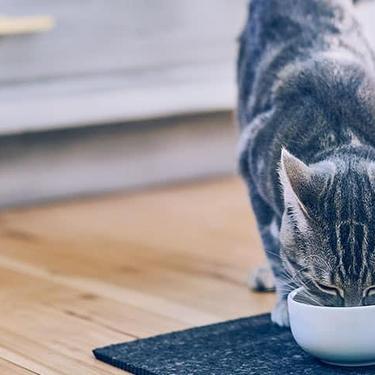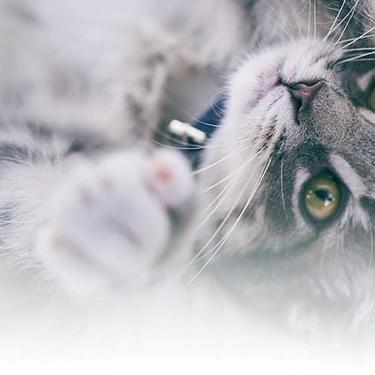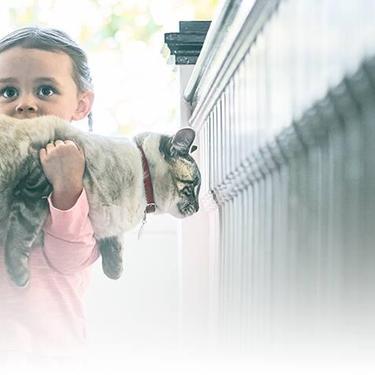
-
Find the right food for your petTake this quiz to see which food may be the best for your furry friend.Find the right food for your petTake this quiz to see which food may be the best for your furry friend.Health CategoryFeatured products
 Adult Light Large Breed Chicken Meal & Barley Recipe Dog Food
Adult Light Large Breed Chicken Meal & Barley Recipe Dog FoodFewer calories for less active large breed dogs
Shop Now Adult Large Breed Chicken & Barley Recipe Dog Food
Adult Large Breed Chicken & Barley Recipe Dog FoodSupports healthy joints, lean muscle, and beautiful coat for large breed dogs
Shop Now Hill's Science Diet Adult Healthy Mobility Large Breed Chicken Meal, Barley & Brown Rice Recipe Dog Food
Hill's Science Diet Adult Healthy Mobility Large Breed Chicken Meal, Barley & Brown Rice Recipe Dog FoodAdvanced nutrition shown to support joint health and improve mobility
Shop NowFeatured products Adult Perfect Digestion Chicken, Barley & Whole Oats Recipe Cat Food
Adult Perfect Digestion Chicken, Barley & Whole Oats Recipe Cat FoodHill's Science Diet's breakthrough nutrition supports ultimate digestive well-being & healthy microbiome
Shop Now Adult Oral Care Chicken & Brown Rice Recipe Cat Food
Adult Oral Care Chicken & Brown Rice Recipe Cat FoodClinically proven kibble technology to reduce plaque & tartar build-up
Shop Now Kitten Healthy Cuisine Tender Chicken & Rice Medley
Kitten Healthy Cuisine Tender Chicken & Rice MedleyDelicious tender chicken and rice in a mouthwatering sauce with precisely balanced nutrition to support 5 essential building blocks for lifelong health
Shop Now -
DogCat
- Cat Tips & Articles
-
Health Category
- Weight
- Skin & Food Sensitivities
- Urinary
- Digestive
- Kidney
- Dental
- Serious Illness
-
Life Stage
- Kitten Nutrition
- Adult Nutrition
Featured articles Cat vs. Dog: Which Is the Best Pet for Me?
Cat vs. Dog: Which Is the Best Pet for Me?Learn about important differences between dogs and cats, such as cost & space considerations. These factors can help you decide which pet is best for you.
Read More Adopting a Pet: What You Need to Know
Adopting a Pet: What You Need to KnowLearn the basics of adopting a pet, including where to begin and common questions you should ask yourself when deciding which kind of pet is best for you.
Read More Fun Ideas for Kids and Pets This Summer
Fun Ideas for Kids and Pets This SummerOutdoor summer activities with your dog or cat can be fun for kids, too. Learn how they also teach kids responsibility & creates a bond with their pet.
Read More -


At some point in your life as a pet parent, you may ask yourself, does my cat hate me? This is especially true if you have independent cats, even if you're a longtime cat mom or dad.
There are more than a few common cat myths, and a persistent one is that they're aloof. Cats are independent creatures, yes, but they are social creatures, albeit in a different way than dogs. What are some factors that may explain your kitty's personality?
Natural Instincts
John Bradshaw, the author of Cat Sense, explains to NPR that a cat's instincts may lead you to believe she doesn't care about her caregiver. "They evolved from a solitary animal that has never had the need for a sophisticated social repertoire."
Unlike dogs that travel in packs, cats for the most part, are solitary hunters used to living on their own. Indoor domesticated cats have no need to hunt for their food (although they will stalk down prey in the form of toys, stuffed animals, and even your socks) and therefore rely on their pet parents to take care of them. She needs you to fulfill her necessities of food, water, healthcare, and love, but your feline friend's independent streak remains intact!


Tasty Tips
She Wants Some Space
It may sound counter-intuitive, but giving your cat her own space will improve your bond. The Royal Society for the Prevention of Cruelty to Animals recommends that cats "should have access to several rooms," not confined to just one or two. A happy cat is one that has her own spot (or two or three) in the house where she won't be bothered by pesky people.
If you've brought a new kitten or adolescent cat into your home, chances are she'll find more than a few ways to get your attention. The flip side is that she may hide from you or act standoffish, prompting the question, does my cat hate me? But it doesn't mean your new family member doesn't love you. It's not you; it's her.
She just may be skittish because she hasn't been around people that often. To strengthen your bond with your new fur baby, PetMD recommends, allow your cat to approach you first, rather than chasing her down, so she knows she's in charge, or at least feels that way. You also can use a few pieces of her food to lure her out of her hiding spot. Your kitty will trust you more if you give her the security of a good hiding place. Once she claims such a spot (under the bed, behind a couch), give her access to that area at all times.
Your Cat's Age
As cats age, their needs evolve, and senior cats require a shift in care. Many older independent cats seek more comfort from their pet parents than they did before. In addition to paying close attention to her changing health care needs, notes PetMD, one way to maintain and improve your bond with her is to give her lots of pets and an easily accessible napping spot. When your feline friend knows she can rely on you, she will reward you with her love and loyalty.
Does Your Cat Hate You? No!
And boy, do cats need love. They require "alone time" to regroup and recharge, but during their awake and active hours, it's just the opposite. It's not uncommon for a cat to disappear alone somewhere in the house for hours, only to reappear suddenly, demanding all of your time and attention. Be sure to give it to her. In addition to belly rubs, pets, and playtime, you also show your love by providing her with fresh food and water, keeping her well-groomed and healthy with regular trips to the vet, and cleaning her litter box on a regular basis (daily is best, especially if you have more than one cat).
A good balance between giving your fur baby lots of love and lots of personal space is the best way to build a lifelong bond with your cat.
Image source: Christine O'Brien
Contributor Bio

Christine O'Brien
Christine O'Brien is a writer, mom, former English professor, and long-time pet parent whose two Russian Blue cats rule the house. Her work also appears in What to Expect Word of Mom, Fit Pregnancy, and Care.com, where she writes about pets and family life. Find and follow her on Instagram and Twitter @brovelliobrien


Christine O'Brien is a writer, mom, and long-time cat parent whose two Russian Blues rule the house. Her work also appears in Care.com, What to Expect, and Fit Pregnancy, where she writes about pets, pregnancy, and family life. Find and follow her on Instagram and Twitter @brovelliobrien.
Related products

Delicious roasted chicken and rice in a mouthwatering sauce

Delicious tender chicken and rice in a mouthwatering sauce with precisely balanced nutrition to support 5 essential building blocks for lifelong health

Hill's Science Diet's breakthrough nutrition supports ultimate digestive well-being & healthy microbiome

Clinically proven kibble technology to reduce plaque & tartar build-up
Related articles

Get helpful information on proper feline oral healthcare and why it's so vital to take care of your cat's teeth.

Understand the symptoms of a chronic upset stomach in your cat, and learn how to help sooth their discomfort.

Obesity affects more than 30 percent of cats in America. Learn how you can properly feed and exercise your cat to improve its weight management.

Provide the best possible treatment for cats with sensitive skin by spotting the signs, knowing the causes, and understanding the remedies. Learn more now.

Put your cat on a diet without them knowing
Our low calorie formula helps you control your cat's weight. It's packed with high-quality protein for building lean muscles, and made with purposeful ingredients for a flavorful, nutritious meal. Clinically proven antioxidants, Vitamin C+E, help promote a healthy immune system.
Put your cat on a diet without them knowing
Our low calorie formula helps you control your cat's weight. It's packed with high-quality protein for building lean muscles, and made with purposeful ingredients for a flavorful, nutritious meal. Clinically proven antioxidants, Vitamin C+E, help promote a healthy immune system.

